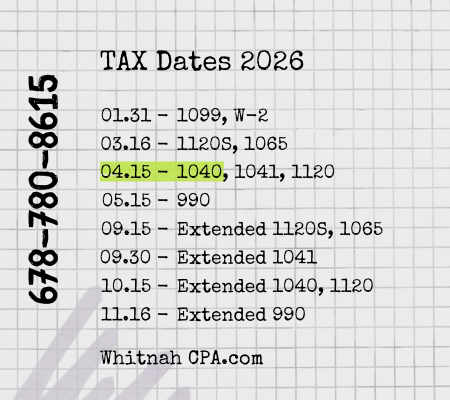Rental Activities Tax Consequences
- Iryna Whitnah
- Aug 17, 2023
- 3 min read
Investing in real estate through rental activities can be a lucrative endeavor, providing a consistent source of income and potential long-term appreciation. However, beyond the financial gains, it's crucial for landlords and property owners to comprehend the tax implications associated with rental activities. From rental income to deductions and reporting requirements, navigating the tax landscape is a vital aspect of managing rental properties.
The most fundamental aspect of rental activities from a tax perspective is the rental income itself. Generally, all rental income received from tenants is considered taxable by the Internal Revenue Service (IRS) and must be reported on your tax return. This includes not only cash payments but also the value of any goods or services received in lieu of rent.
However, the tax treatment of rental income varies depending on the nature of the rental arrangement. For instance:
Residential Rental Properties: Income from traditional residential rentals is typically considered ordinary income, subject to your marginal tax rate. This means that the income is added to your other sources of income and taxed accordingly.
Vacation Rentals: If you rent out a property for a significant portion of the year but also use it for personal purposes, special rules come into play. You may need to allocate expenses and rental income between personal and rental use, affecting the amount of deductible expenses.
Short-Term Rentals: Platforms like Airbnb have popularized short-term rentals. While the income from these rentals is generally taxable, the rules can be complex. The number of days the property is rented, and your personal use of the property can influence how you report the income and expenses.

Deductions and Expenses: Maximizing Tax Efficiency
One of the advantages of rental activities is the ability to deduct various expenses associated with the property. Deductible expenses can significantly reduce your taxable rental income. Common deductible expenses include:
· Mortgage Interest: The interest on loans used to acquire, improve, or maintain the rental property is deductible.
· Property Taxes: Real estate taxes paid on the property are generally deductible.
· Maintenance and Repairs: Expenses related to maintaining and repairing the property can be deducted.
· Utilities and Insurance: Costs for utilities, property insurance, and other necessary services can also be deducted.
· Depreciation: While not an immediate expense, depreciation allows you to recover the cost of the property over time, reducing your taxable income.
· Property Management Fees: If you hire a property management company, their fees can be deducted.
· Travel Expenses: If you travel to manage your rental property, you may be able to deduct travel expenses.
Passive Activity Losses and Material Participation
Rental activities are often classified as passive activities for tax purposes. This means that losses generated from rental properties are generally only deductible against passive income. However, there are exceptions. If you meet certain criteria, you might be able to actively participate in your rentals and use the losses to offset other income.
Reporting Requirements: Keeping It Legitimate
Accurate reporting of rental activities is crucial to avoid potential IRS audits and penalties. It's important to maintain detailed records of income and expenses related to your rental properties. Form 1040 Schedule E is typically used to report rental income and expenses. However, in some instances, you will use Schedule C to report rental income.
Additionally, if you're receiving rental income from international sources, you may need to navigate.
Engaging in rental activities can provide both financial rewards and tax challenges. Understanding the tax consequences of rental income, deductions, and reporting requirements is essential for landlords and property owners to maximize their financial benefits while ensuring compliance with tax regulations. Consulting a tax professional or accountant who specializes in real estate taxation can be invaluable in helping you navigate this complex landscape and make informed decisions regarding your rental activities.




Comments